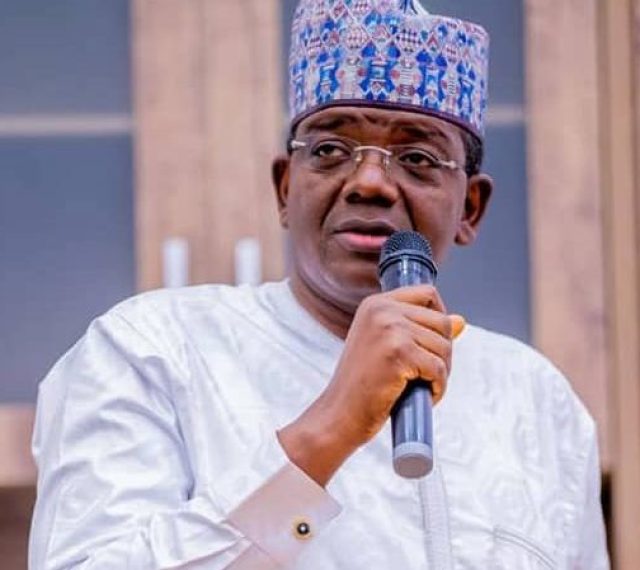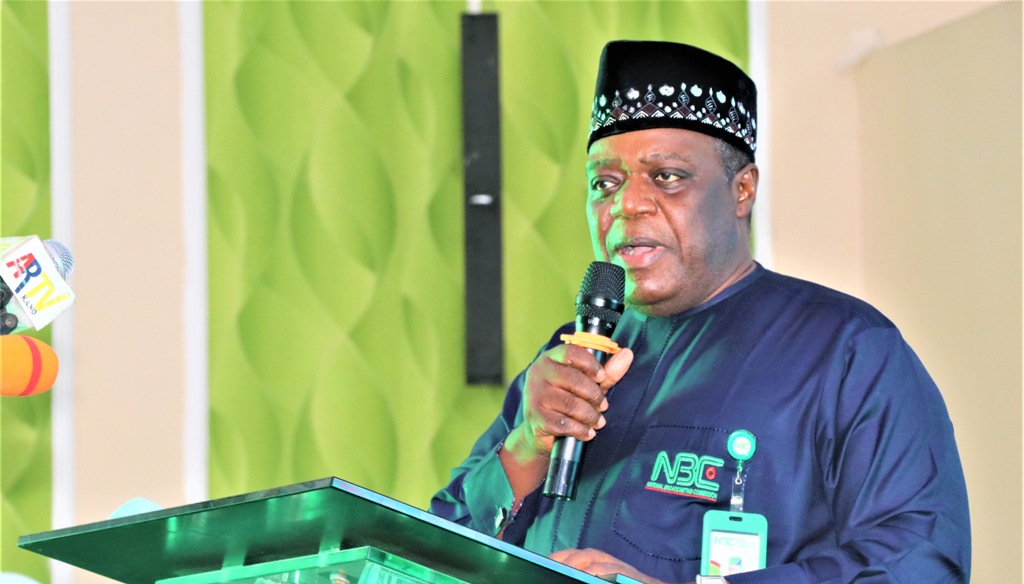On October 15, 2022, the Zamfara state government, in northwestern Nigeria, shut down four broadcast stations: three television stations and one radio station.
The affected stations were the federal government-owned Nigeria Television Authority (NTA), Pride FM, and privately-owned Gamji TV and Al-Umma TV. All the stations are located in Gusau, the state capital.

The ban on the stations followed their coverage of a political rally organised by the state’s opposition Peoples Democratic Party (PDP). The state governor, Bello Matawalle, is a member of the All Progressives Congress (APC), the current ruling party in Nigeria.
Ibrahim Dosara, spokesperson of the state governor, said the media houses were punished for “the violation of government order and journalism practice.”
Dosara said the state government had earlier banned political rallies across the state following the resurgence of bandit attacks but the affected media houses flouted the order and attended the PDP-organised rally.
“The state government has suspended all political activities in the state due to security challenges, but the PDP ignored the order and held a rally in Gusau, the state capital, where one person was killed and 18 others were injured.
“The four media houses, NTA, Gamji TV, Al-Umma TV, and Pride FM, were also at the event to cover the occasion even though they were aware of the ban on political rallies by the state government.
“Given this, the four media houses are hereby closed down with immediate effect,” Dosara declared, adding, “The government has directed security agents to arrest any staff member of the affected stations who try to go into the stations to perform any duty,” he said.
The Media Foundation for West Africa (MFWA) learnt that one person was killed and 18 wounded when youth groups from the APC and PDP clashed on the day the latter held the rally.
The police confirmed the figures and said the incident would be investigated. “Discreet investigation into the case has commenced aimed at ensuring that the perpetrators face the full wrath of the law,” said Muhammad Shehu, the state police spokesperson.
Zamfara state has for almost a decade been in the throes of security challenges, mainly banditry and kidnapping. Rampaging terrorists, known locally as bandits, have carried out deadly attacks on both civilians and security forces. Thousands of lives have been lost, farmlands destroyed and many people have been displaced. Meanwhile, an amnesty programme initiated for the bandits has failed to stem the crisis.
Wave of criticisms
The shutdown of the broadcast stations following the coverage of the PDP stirred a flurry of criticisms from media rights groups as well as from the National Broadcast Commission (NBC), the broadcast regulator which itself has been notorious for sanctioning media houses for not doing the government’s bidding.

Balarabe Illela, the Director-General of the NBC, in a statement, reminded the Zamfara state government of the gravity of the “illegality” it carried out and requested it “to expeditiously reverse the directive and apologise to the people of the state.”
Illela asked the security agencies to ignore the call to restrict the staff of the affected stations from conducting their legitimate duties, adding that NBC would resist any attempt to misuse the broadcast media as the country heads to the 2023 national elections.
“We call on all industry stakeholders to resist any attempt to truncate the hard-earned democratic gains in Nigeria,” Illela said.
In a press statement issued on October 16, the Nigeria Union of Journalists (NUJ) said the measure “speaks volume of the level of impunity the country has descended into.” The NUJ denounced the measure.
Other groups, including the Nigerian Guild of Editors (NGE) and the Broadcasting Organisations of Nigeria (BON), described the ban on the media outlets as a serious threat to the democratic process and democracy.
The groups said the ban was a dangerous signal to what awaits the media ahead of the 2023 general elections. They noted that media houses, whether or not they are banned, reserve the right to cover all events and that no state government reserves the right to shut them down, in spite of their perceived infractions.
Government backtracks
In a surprising turn of events, the Zamfara government has reversed the order shutting down the media houses that covered the opposition’s rally. The government also tendered apologies to the affected media houses.
Abdullahi Shinkafi, the Chairman of the [Zamfara] State Committee on Prosecution of Banditry and Related Offences, apologised to the media during a press conference on October 17.
He said the state government reversed the order based on the controversies it generated, particularly because it realised that only NBC has the right to shut down any broadcasting organisation.
Shinkafi said the media houses are now free to operate.
“On behalf of the government, I apologise to the media houses. They can start operating and they must abide by the government’s Executive Order 10 signed by the governor, pending the vacation of the order. Once it is vacated, they can cover whomever they want to cover,” he said.
MFWA commends the Zamfara state government for reversing the ban on the media outlets, though is worried that the initial order should never have been given. The initial shutdown of the media outlets violates Section 39 of the Nigerian constitution, which provides that every person shall be entitled to freedom of expression, including the freedom to hold opinions and to receive and impart ideas and information without interference.
